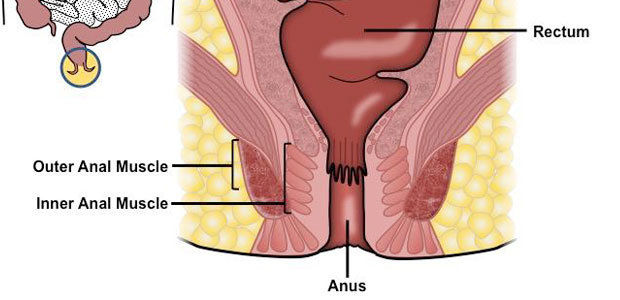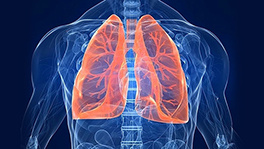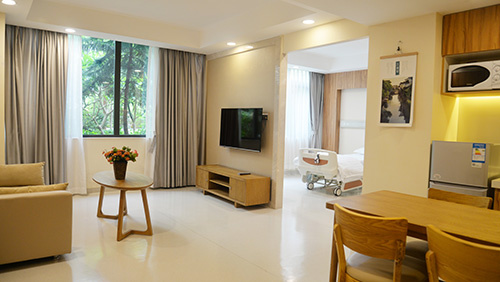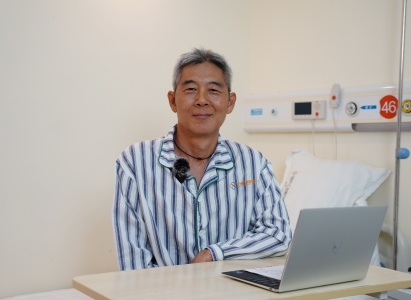
What is anal cancer?
Anal cancer is a kind of malignant tumor which originates from cells inside anus, and often locates in the skin of anal canal or margin. Anal periphery cancer means the tumor locates under tooth trace of anus, while squamous cell cancer occurs more often in and around the anus or anal canal, and often is caused by long-term chronic stimulations and damages, like anal fistula, hemorrhoid, surgical scar, warts and latent hair.
How common are morbidity and mortality of anal cancer?
Anal cancer is a kind of less common cancer, but there are around 30,400 people are diagnosed with anal cancer each year around the world. About 710 people are died of anal cancer each year. What’s more, there are steadily growing trend for morbidity and mortality of annal cancer. Anal cancer is more common seen in women, and female and male incidence rate ratio is 3:2.
If you are diagnosed with cancer, please consult online doctors for more information.
What are the causes of anal cancer?
Causes of anal cancer are still not defined, but some studies showed that some factors may be associated with anal cancer, which include: Human papillomavirus (HPV), sexual activity, smoking, HIV infection, anal benign disease and others.
What are the types of anal cancer?
In accordance with the difference of onset parts of anal cancer, it can be classified into the following types: cancer in situ, squamous cell carcinoma, adenocarcinoma, basal cell cancer and malignant melanoma.
Cancer in situ: some anal superficial cells look very abnormal, like cancer cells;
Squamous cell carcinoma: tumor from squamous cells in the anal margin and most of the anal canal.
Adenocarcinoma: it originates from the gland that release anal secretions and is below anal mucous membrane or from the apocrine gland as well (a perianal skin gland that secrets sweat).
Basal cell cancer: it occurs around the perianal skin or other skin parts that are regularly exposed to the sun, such as face and hands, but it is rare to occur in the anus.
Malignant melanoma: it refers to the tumor developed by the anus skin cells that contain melanin, and there are only about 1-2% of anal cancers are melanomas.
If you are diagnosed with cancer, please consult online doctors for more information.
What are symptoms of anal cancer?
There is symptom like anorectal bleeding;
The anal area would feel uncomfortable and abnormal itchy.
There will be small lumps around anal margin, and they grow slow.
There are changes in bowel habits, and the shape of the stool becomes thinner.
Lymph glands around the anus or groin become swollen.
There is a slight pain around anus, and the pain gets worse when the tumor invades into the anal canal or sphincter.
What are the examination methods of anal cancer?
Conventional examinations: anal visual examination and palpation, or a routine physical examination includes: stool examination, rectal examination, and colonoscopy.
Anoscopy: anoscopy should be preceded by visual examination and palpation; the doctor lubricates anoscope and then gently pushes it into the anus and rectum to see whether there is lumps inside anus.
PET/CT: PET/CT can evaluate the severity of anal cancer and define whether there is metastasis occurred to lymph as well as to distant organs.
Biopsy: Doctors use needles, small scissors or pliers to draw a small part of tumor, and then pathologists would apply a microscope to observe whether the inspected organization has canceration. Biopsy includes: fine needle aspiration biopsy and sentinel lymph node biopsy.
If you are diagnosed with cancer, please consult online doctors for more information.
What are the traditional treatment methods of anal cancer?
Surgery: the site for surgical resection can be determined as per the tumor site and whether there is tumor invasion occurred to sphincter, and lymph node metastasis to groin or not. Surgery includes: abdominal perineal resection and partial resection.
Radiotherapy: radiotherapy is performed as per anal patients’ systemic condition and local condition of tumor. Radiotherapy can be applied to combine with surgery: the use of pre-operative radiotherapy can increase the resection rate; the use of radiation therapy after surgery can reduce anal cancer recurrence.
Chemotherapy: chemotherapy is conducted through oral-taken medication, and sometimes the drug may be injected into the patients’ veins or muscles for treatment therapy. Usually chemotherapy is in conjunction with surgery and radiotherapy to reduce the recurrence of anal cancer.
What are the nursing methods of anal cancer?
Anal cancer patients shall actively cooperate with doctors’ treatments;
Anal cancer patient shall adhere to good living habits;
Anal cancer patients shall give up smoking (if any) and never eat hot spicy foods;
Anal cancer patients shall eat more fresh vegetables and fruits;
Family members and friends of anal cancer patients shall care and encourage patients in no time;
Anal cancer patient shall avoid negative, sad or upset emotion.
If you are diagnosed with cancer, please consult online doctors for more information.
The best treatment methods for anal cancer:
The multiple disciplines medical team composed by surgeons, pathologists, radio-oncologists and professional nurses, can provide patients with customized treatment plan through consultations as per anal cancer patients’ condition, so that greatly improve the therapeutic effect of patients.
TCM can also be provided.
TCM have the function of regulating equilibrium and strengthening body resistance to fight cancer, improving immunity as well. Modern Cancer Hospital Guangzhou can combine TCM with other treatment technologies to integrate the advantages of TCM as well as western medicines, and improve the effect of treatment effectively.
If you are diagnosed with cancer, please consult online doctors for more information.


 (MY)+60 10-898 8919
(MY)+60 10-898 8919


























 Leave
Leave